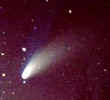




Comets
by Peter Alway
| Two remarkable comets graced the Earth's skies in the late 1990's and I managed to photograph both. I am particularly proud of the shots I made with the University of Michigan's 24" telescope on peach Mountain. Run by the University Lowbrow Astronomers it is a unique resource for amateurs in the Ann Arbor area. | |
| Lowbrow Home Page | |
| Club Information | |
| Lowbrow Astro Pictures | |
| Openhouses | |
| McMath 24" Telescope | |
| Astronomy Links | |
| Search | |
| Observer's Guide |
Astronomy Pages:
 |  |  |  |  |
Comet Photos:
| This image dates to March of 1987, at Peach Mountain, near Dexter, Michigan. from left to right, the crescent moon (grossly overexposed), the Pleiades star cluster, the University of Michigan's 85-foot radio telescope, and Comet Hale-Bopp. | 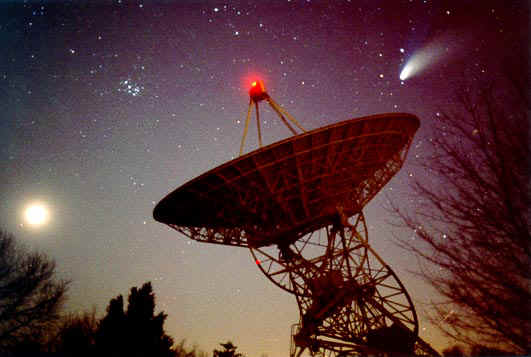 | |
| Same comet, different night. The blasted UV filter created internal reflections--you can see the extra image of the control room windows in the sky, above and to the left of the comet. | ||
| Here's a closeup of Comet Hale-Bopp, taken with a 135 mm lens. The diffuse whitish tail is made of dust blown off the surface of the comet's nucleus. The double blue tail is the Ion tail--made of gas taht evaporated from the comet's surface. | 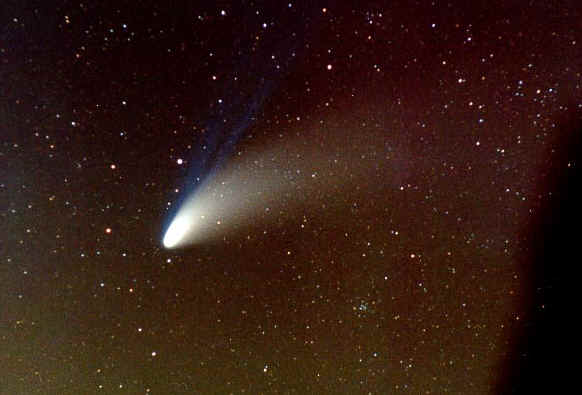 | |
| This is an extreme closeup of the inner coma of Comet Hale-Bopp using the 24" optical telescope at Peach Mountain. this telescope is maintained by the University Lowbrow Astronomers for club and public viewing. You can see gas shot off in a spray from the spinning nucleus, producing a pinwheel. | 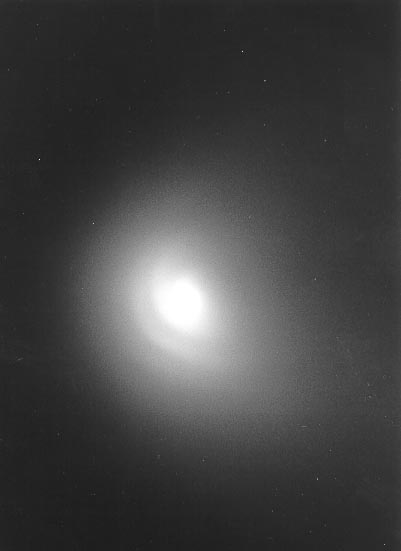 The 50-foot focal length of the24" telescope makes it 15,240 mm telephoto lens. So you could think of this as a 300X enlargement over a 50 mm normal lens shot. | 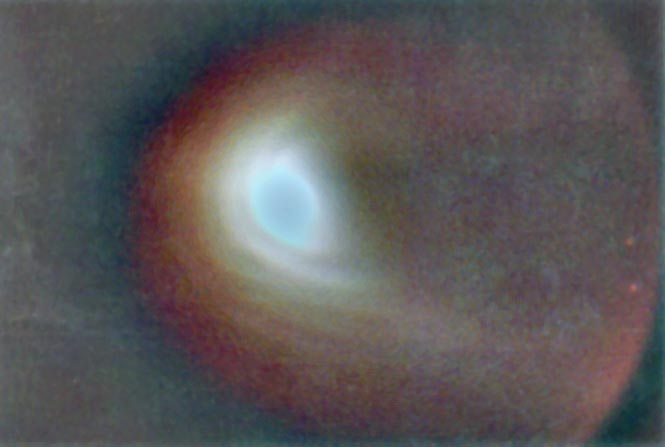 With lots of enhancement (high-pass filter in Photoshop, then blasting up the contrast) you can see several concentric "rings" of gas emitted by the comet's nucleus on successive rotations. The spacing between rings is comparable to the diameter of the Earth. |
| Comet Hyakutake visited the inner solar system in March of 1996. It had a striking long tail, and passed very near Polaris, the North Star. | 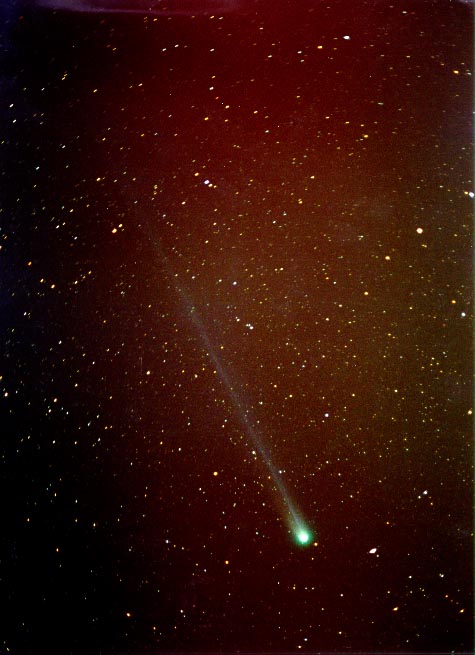 | |
Lowbrows Club-Info Lowbrow-Pictures Openhouses Telescope Links Search Observer's-Guide
send e-mail to the author of this page, Peter Alway <petealway@aol.com>